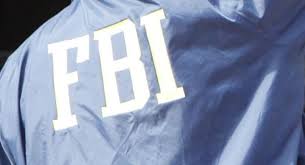By Andrew Warshaw
April 8 – Qatar’s World Cup organisers, who thought they had finally moved on from years of suspicion and finger-pointing over the process by which they were awarded the 2022 tournament, have been forced to deny fresh allegations of corruption and bribery.
An explosive new US Department of Justice indictment was released on Monday which claimed the three South American FIFA members at the time of the ballot 10 years ago – Brazil’s Ricardo Teixeira, the late Nicolás Leoz from Paraguay and an unnamed co-conspirator believed to be the late Julio Grondona from Argentina – took bribes to vote for Qatar.
The US justice department also alleged that the infamous Jack Warner, Concacaf president at the time of the ballot in 2010, “was promised and received” $5 million through 10 different shell companies that included entities in Anguilla, Cyprus and the British Virgin Islands, to vote for Russia to stage 2018.
Qatar’s World Cup organisers, who have concentrated in recent months on trumpeting facilities for the first ever winter World Cup, were quick to reject the charges which could hardly have come at a worse time with preparations in full swing.
“Qatar’s Supreme Committee for Delivery and Legacy strongly denies the allegations contained within the court papers made public in the US on 6 April 2020,” the Qataris said in a statement.
“They are part of a long-standing case, the subject of which is not the 2018/2022 FIFA World Cup bidding process. Despite years of false claims, evidence has never been produced to demonstrate that Qatar won the rights to host the FIFA World Cup 2022 unethically or by means that contravened FIFA’s strict bidding rules.
“The SC maintains that it strictly adhered to all rules and regulations for the 2018/2022 FIFA World Cup bidding process and any claim to the contrary is baseless and will be fiercely contested.”
Nevertheless, the latest revelations will only serve to rekindle all the old misgivings just when the Qataris – who have been fending off suspicion ever since being awarded the tournament – are trying to put all their focus on the tournament itself, notwithstanding the threat of Covid-19.
For its part FIFA attempted in a carefully-worded statement not to take sides.
Saying it supported all investigations into “alleged acts of criminal wrongdoing”, it added: “The FIFA Ethics Committee has already imposed sanctions, including life bans, on football officials mentioned in this process.”
“So far as FIFA is concerned, should any acts of criminal wrongdoing by football officials be established, the individuals in question should be subject to penal sanctions.”
Except that, crucially, the newly released documentation does not specify who was behind the alleged bribery leaving the entire process open to speculation and interpretation.
The new claims from the US Department of Justice raised questions in some quarters about whether FIFA might open a fresh inquiry, having already exonerated the Gulf state from any wrongdoing.
Frankly, that is unlikely to happen with the tournament certain to go ahead in November and December of 2022. Significantly, two of those accused of receiving bribes, Leoz and Grondona, have died, so cannot be found guilty. Teixeira, former son-in-law of ex-FIFA president João Havelange, has so far avoided extradition to face the multiple corruption charges against him.
But what the latest adverse publicity has done is to once again put 2022 organisers on the back foot and re-open a debate that had been largely receding.
Meantime, Russia’s 2018 World Cup organising supremo Alexey Sorokin, who led their bid, also denied any complicity by his team.
“We can’t understand what this is about, or how to react,” Sorokin told The Associated Press. “We the bid committee had nothing to do with this. … It looks like a perfect conspiracy theory.”
Contact the writer of this story at andrew.warshaw@insideworldfootball.com

